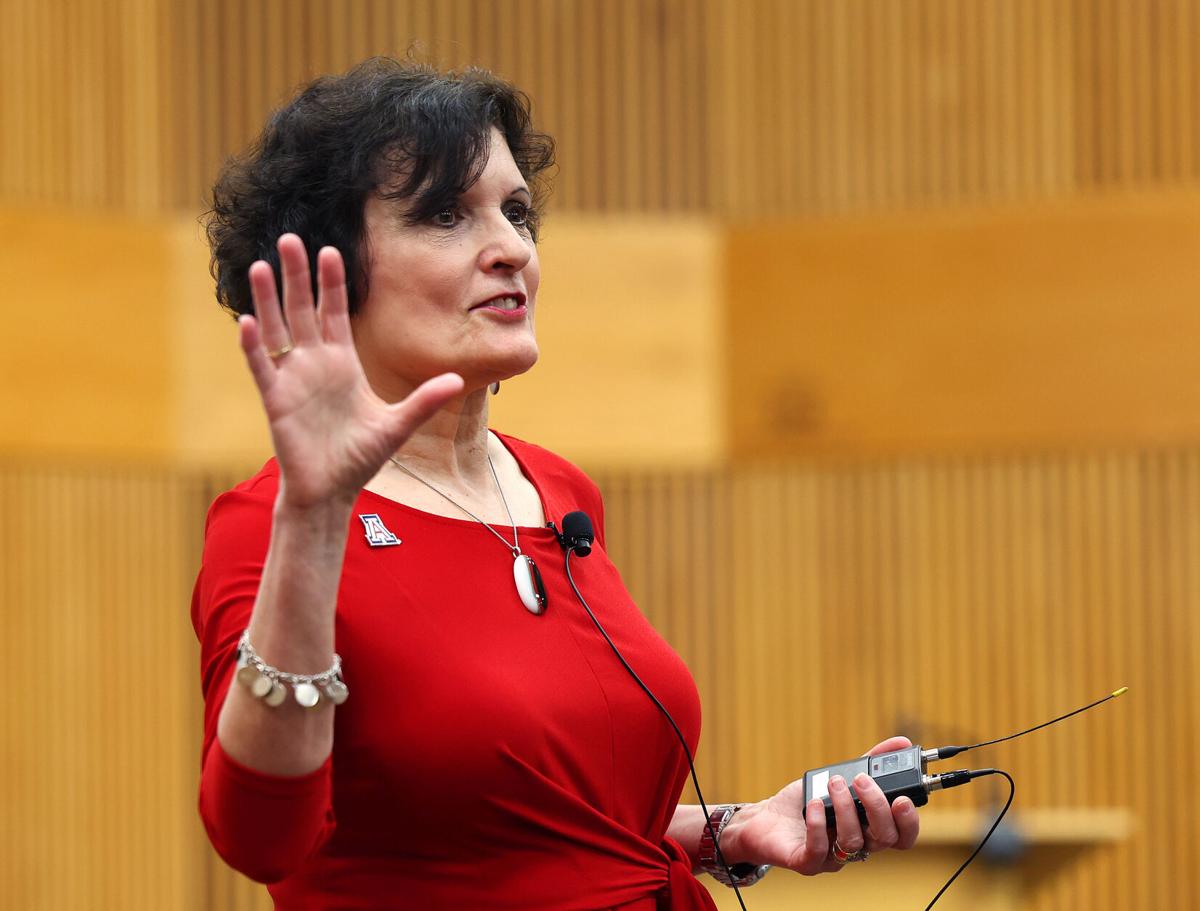The University of ĂŰčÖÖ±˛Ą will consolidate all of its cultural and resource centers into a single multicultural center, in the wake of Trump administration orders against DEI, but will retain the different physical spaces of each of the current seven centers.
Patricia Prelock, the UA's new provost who started her role Monday, confirmed in a communication with a university administrator the plan to centralize all seven of the  into one multicultural center. She also said in that communication that UA will retain the counselors and programs from each of the centers and evaluate how the new structure is working in the coming months.
UA spokesperson Mitch Zak declined to comment and said Prelock was unavailable to talk with the ĂŰčÖÖ±˛Ą.
An individual who used to work as a senior coordinator with the cultural centers at the UA — who asked that their name not be used due to fear of retaliation — said the plan to dismantle the centers and centralize them will be conveyed to cultural center staffers in a meeting next week.
People are also reading…
All current directors of the cultural centers, except the directors of Native American Student Affairs and the Disability Cultural Center, received a meeting invitation for May 27 from Jenna Hatcher, the university’s vice provost and chief inclusion officer.
The seven current centers, commonly referred to as CRCs, are Native American Student Affairs, Asian Pacific American Student Affairs, African American Student Affairs, the Guerrero Student Center, LGBTQ Student Affairs, the Women & Gender Resource Center, and the Disability Cultural Center.
They have more than 80 staffers who serve 28,000 students.
Some of the cultural centers were established in the 1980s and 1990s.
The meeting was initially set to happen Thursday, but was moved to the Tuesday after Memorial Day weekend, several sources related to the CRCs told the Star.
The former senior coordinator also said Prelock has been meeting with UA administrators about the plan in the months leading up to her start on May 19 as senior vice president of academic affairs and provost. UA administrators were waiting for students to graduate and leave campus before revealing the official plan, the source said.
Prelock worked with UA President Suresh Garimella before at the University of Vermont, where he was previously president and she was his provost. He joined the UA last October.
President Donald Trump issued executive orders after his inauguration Jan. 20 telling universities they must end diversity, equity, inclusion and accessibility (DEIA) activities under threat of losing federal funding. ĂŰčÖÖ±˛Ąâ€™s Republican-controlled Legislature has also threatened universities with the loss of state funding if DEIA activities, which they call illegal discrimination, aren't ended.
In response, Garimella has said the UA will take inventory of its DEIA-related jobs, programs and activities; has taken down the UA’s Office of Diversity and Inclusion website; and removed the words “diversity and inclusion” from the university’s widely-used land acknowledgement statement.
Earlier in March, a UA DEIA Collective said former Interim Provost Ron Marx had told them a cultural centers centralization plan was being submitted to Garimella, which the collective said could lead to “mass layoffs of undergraduate, graduate, and professional staff.” At the time, the plan was not expected to include the Native American Student Affairs center because Indigenous students are legally a protected political identity, the collective had said.
Julio Cammarota, a UA College of Education liaison to the cultural and resource centers, had told the Star in March that the idea was to protect the services the centers offered but restructure them so there aren’t seven individual centers.
The DEIA collective — “a coalition of full-time, undergraduate and graduate DEIA staff from UA’s main campus” — sent a letter then to the ĂŰčÖÖ±˛Ą Board of Regents, Garimella, Marx and Laura Todd Johnson, senior vice president for legal affairs and general counsel. It asked them to respond by April 1 on whether they were committed to retaining the cultural centers.
The collective’s statement said UA was choosing to act on DEIA despite ongoing lawsuits and preliminary injunctions against the Trump administration's orders. "UA’s preemptive compliance would have devastating effects on DEIA workers at all levels of the UA," it said.
While Garimella didn’t respond to the collective’s , he sent a letter April 1 to ĂŰčÖÖ±˛Ą Sen. President Warren Petersen, detailing the ways the UA is complying with state and federal DEIA orders.
On Thursday, the former coordinator with the UA’s CRCs said cultural centers at universities are important. The only way certain students feel comfortable in college is to have social and emotional support on top of academic support, they said.
“The way the University of ĂŰčÖÖ±˛Ą is responding to this is so interesting because, number one, it's not a law, right? It's an executive order,” said the source. “Number two, they actually haven't connected to students. What they're doing is classic, waiting until students leave so they don't have to respond to students, that they can create some insulation away from protests and demonstration."
Get your morning recap of today's local news and read the full stories here: tucne.ws/morning
Reporter Prerana Sannappanavar covers higher education for the ĂŰčÖÖ±˛Ą and . Contact her at psannappa1@tucson.com or DM her on .








